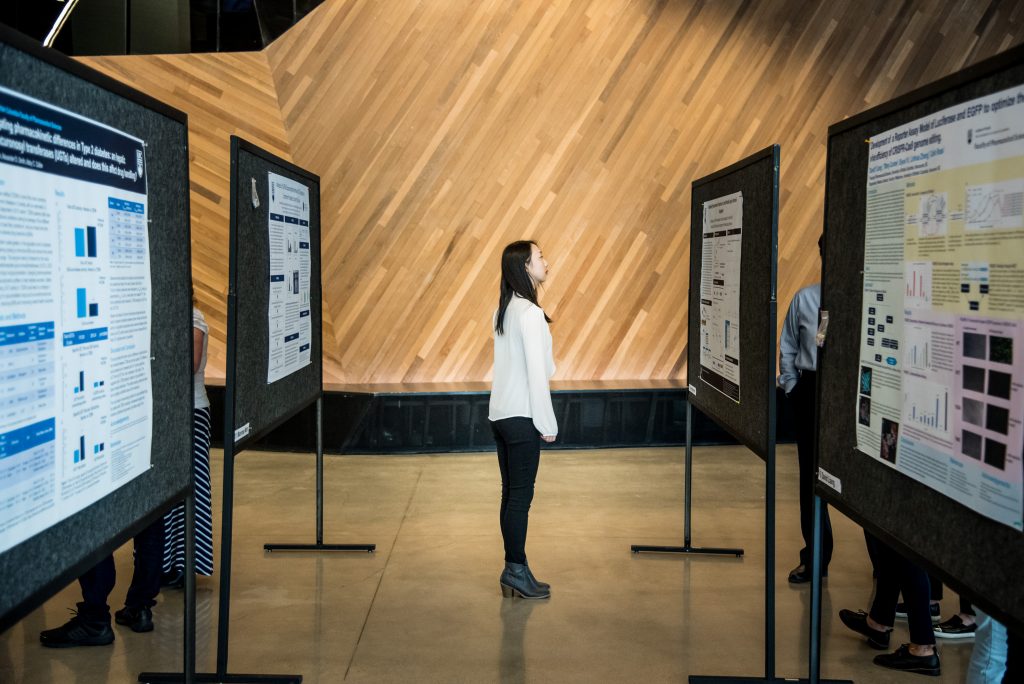The pharmacy profession is rapidly evolving and many entry-to-practice students are looking for ways to diversify their experiences.
One way to get involved in student research is through the Faculty’s summer student research program (SSRP). In today’s guest post, second-year student and Summer 2017 SSRP alum Karn Puri shares his advice and experiences.
Managing your schedule
The SSRP may seem like additional work on top of an already busy schedule but it’s not as demanding as you may think! Work typically starts after final exams and supervisors are willing to work around your practicum schedule.
Securing a spot in the program
Last year there were less than 20 spots available so we had to move fast to secure a position! I recommend talking to professors after class or in their office about potential research opportunities. If you want to secure a position, you should try to talk to them at the start of the year as new spots may have become available. Don’t hesitate to have this conversation! Your professors may seem intimidating at first, but they’re honestly some of the nicest people you’ll meet and are willing to put in the time and effort to train you into a well-rounded student.
What’s expected of you
There are two expectations of SSRP students: to work hard, and to have a good attitude. Previous experience is ideal for most labs but not absolutely required. Keep an eye out for the program application form which is usually sent out via UBC email in second semester. The application requires your transcript, a current resume, and a short explanation of your interest in the SSRP. Students are paid a salary for their participation in the program, which is usually around $4,557 CDN for the 12-week period.
Benefits of the program
The SSRP program is a lot more than a resume booster. The skills you learn in a research lab can’t be learned in a lecture. It requires a change in mindset. Missing one step of a procedure will cost you one or two marks in an end of block exam, but in the lab, it may cost you weeks of work and thousands of dollars! The critical attention to detail required to work in a research lab is very relevant to future pharmacists who will be managing multiple medications and handling sensitive patient care.
The poster competition and multiple lab meetings help develop public speaking abilities and give a sense of what it takes to maintain the interest of an audience. Pharmacists teach and counsel patients, so understanding how to communicate effectively is a very important skill. Student research also enriches your studies by helping you to apply lecture knowledge to generate data in the lab. For students who want to specialize, this is a good way to acquire a deeper understanding of your area of interest.
Karn’s personal experience
As a student in Dr. Rodrigues’ lab, my experience was very rewarding. The lab was supportive and willing to put in lots of their own time into my learning. I worked under a graduate student to help generate data, but I know that other undergraduate students have worked directly under a principal investigator. As I gained more experience over the course of the summer, I could carry out different lab techniques with minimal supervision.
At the end of term, all SSRP students were expected to participate in a poster competition. I spent some of my free time between experiments reading cardiovascular papers and understanding the theory behind the lab techniques to prepare for the contest. Also, my lab members constructively critiqued the poster until it was presentable. The competition took place mid-September during school hours. All participants were given a time slot to present and answer questions. The judges looked for a coherent and well-articulated presentation that conveyed a single, straightforward message with supporting evidence. At the end of the research day, prizes were given out for 1st, 2nd, and 3rd place.
The SSRP program gave me appreciation of the time and effort it takes to generate the information that is used to guide our clinical decisions. Furthermore, I acquired an important set of skills that will be useful for pharmacy practice.
I would strongly recommend this program to anyone who has the chance to participate and advise that you try to find a supervisor early.
Submitted by Karn Puri, Class of 2020



 Follow
Follow